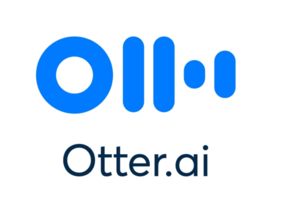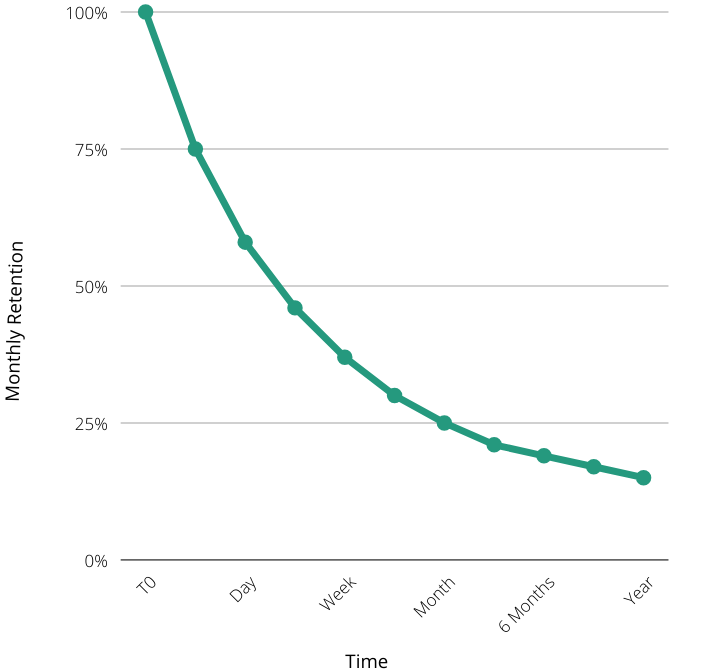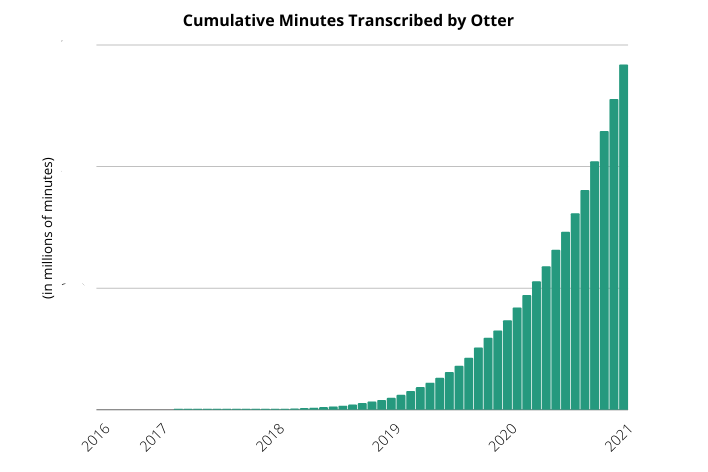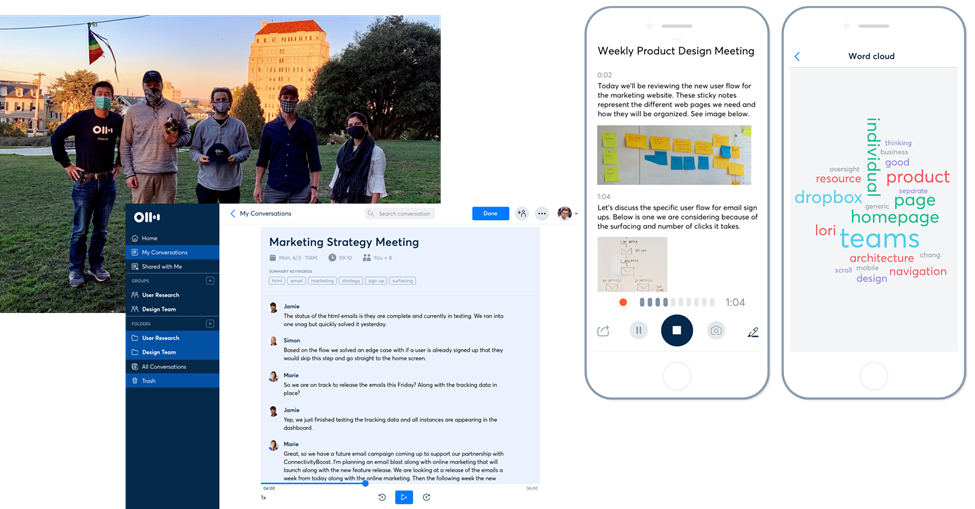
perspectives
Otter: Elevating Verbal Communication with AI-Powered Transcription

Every day in the United States, knowledge workers conduct 11 million meetings. While we’re not here to debate whether all these meetings are a good use of time, we think there should be universal agreement that the good ones really are worth it. Meetings are irreplaceable venues for individuals to facilitate the effective dissemination of information, sharing of ideas, and means by which to spark creativity. This concept isn’t limited to formal meetings, it applies to verbal communications of all kinds. The reality is that the spoken word remains our most used and, often, most effective means of communication.
So if we’re sharing all these great ideas and information verbally, what happens to it all when you need it the day after, the week after, or the month after? For most of us, it’s either a foggy memory (science backs this up) or it’s stored as chicken scratch in a notebook that, at best, is shelved to gather dust, or more likely, finds the garbage bin. The result is incredibly low information fidelity on an enormous amount of business-critical data and a huge part of our work lives.

Enabling a New Transcription Use Case
Sam Liang and Yun Fu were determined to solve this problem when they founded Otter.ai in 2016. Their vision was to capture our spoken word and, in doing so, create a system of record for the information contained within it. The idea of transcription was not a new one, but the ease, accuracy, and price that Otter.ai made it accessible was. Previously, transcription was reserved for only the highest value use cases because it was human-based, slow, and expensive. The Otter.ai team built their solution from the ground up with an AI-first approach to remove these barriers. The result of Otter.ai’s in-house, integrated acoustic models, language models, diarization (speaker recognition) algorithms, and NLP algorithms is distinctive accuracy, full direction over algorithm training, and complete control of the company’s cost drivers. By utilizing AI rather than humans, Otter.ai enables users to employ transcription in new, everyday use cases previously not practical and with nearly no wait time. Whether you’re conversing for 5 minutes or 3 hours, over Zoom, Google Meet, or in person, Otter.ai transcribes your communications and catalogs them in your library, all for a reasonable monthly fee.
Empowering Teams with a Productivity Platform
While the transcription capabilities of Otter.ai are powerful in their own right, Otter.ai unlocks the value of a user’s transcription library by layering in tools and workflow that transform the text into insights. With annotation and text editing tools, transcript sharing features, group workspaces, advanced search, speaker statistics, automatic keyword generation, and with more to come, Otter.ai provides users with a structured approach to transcription, taking an accurate record of the past to inform the future. These features become especially impactful amongst teams or groups of users. By sharing transcripts, teams pool information and can collaborate on the information that was previously confined to individual silos.
Freemium Subscription Model Adopted by Millions of Users, and Growing
Otter.ai has already been executing against its vision to make all verbal interactions more effective at an incredible pace, but it’s just scratching the surface.

Millions of people have begun using Otter.ai’s freemium subscription model. Powered by use cases that inherently define word-of-mouth virality (people talk during meetings!), a product-led growth strategy that encourages sharing and collaboration, and a repository of historical conversations that drives user stickiness, Otter.ai is quickly gaining mindshare and momentum. On a monthly basis, Otter.ai users transcribe over 50 million minutes. That’s over 100 years’ worth of conversation! Users are tapping Otter.ai as a productivity platform for more than business meetings, leveraging it in university lecture halls and classrooms, user interview and research settings, journalism, podcasts, or even just to transcribe personal thoughts.
Central to the company’s highly efficient growth pattern (and Spectrum’s thesis) is their focus on product-led growth and bottoms-up penetration of large enterprise accounts with a robust teams use case. An enterprise’s first Otter.ai user transcribes their team’s weekly review, tells the team they’re transcribing the meeting using Otter.ai, and shares the transcript notes with their five team members; those individuals in turn sign-up for Otter.ai and begin transcribing the rest of their meetings. Before long, a third of the organization regularly leverages Otter.ai, and the company purchases a central subscription.
We are honored to add Otter.ai to our growing family of companies employing this efficient self-serve, freemium, bottoms-up customer acquisition strategy. Other portfolio companies such as SurveyMonkey, Lucid Software, Prezi and Headspace not only mirror Otter.ai’s go-to-market strategy, but share a relentless focus on driving unique and differentiated ROI for their individual, team, and enterprise users. We cannot overstate how excited we are to partner with the Otter.ai team and support their ambitious growth plans.
If you’d like to learn more about the company, read the press release about Spectrum’s partnership with Otter.ai.

The following sources were used in drafting this blog post: eLearning Industry and Otter.ai.